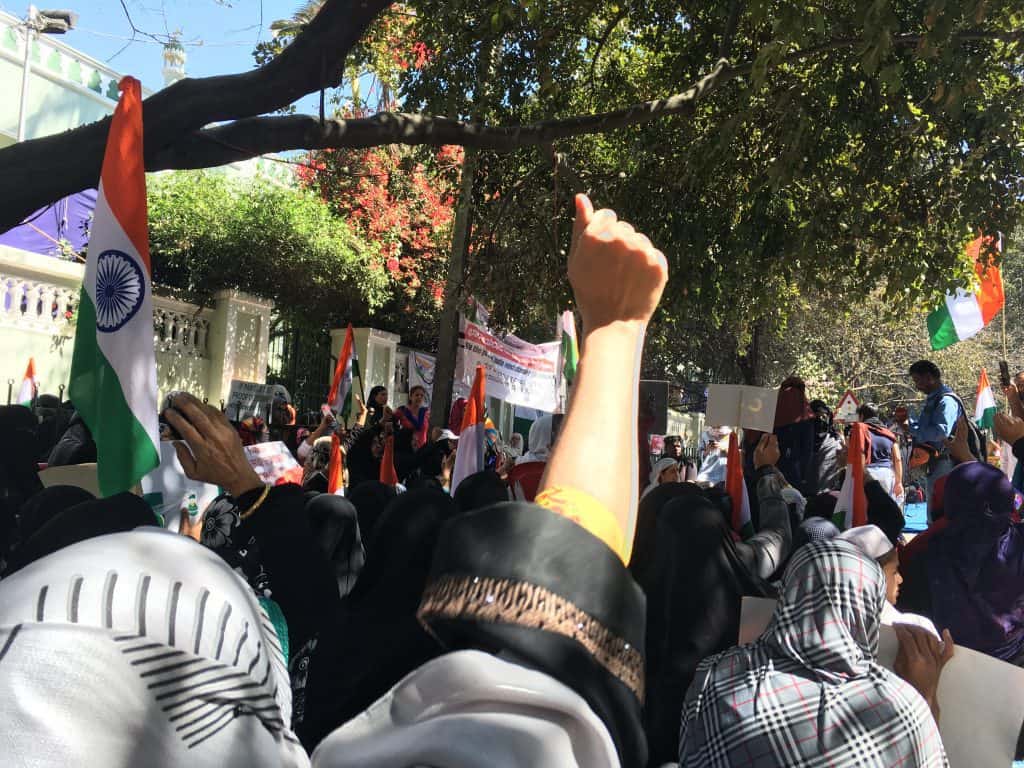On a day Karnataka’s Covid number crossed 50k, with 50% of it coming from Bengaluru alone, the attention was else where. All thanks to the sting operation conducted by BJP MP Tejasvi Surya, MLAs Ravi Subramanya, Satish Reddy and Uday Garudachar, all from the ruling party, on 4th May 2021.
Was anyone surprised that there was corruption in bed allocation? I wasn’t. Was corruption really the focus of the sting operation? You tell me. Seventeen workers out of the 206 employed in the COVID war room were fired for being Muslim.
A smear campaign
Among the arrested so far, a majority of them are from the Hindu community, and no proof of Muslims sabotaging Hindu patients has emerged yet. None of them from the list of 17 names read out and live streamed. (Yes, unlike the usual journalistic practice of not naming communities involved, I am going to name them. We are way past the time of disingenuous politeness).
These 17 names are now in every WhatsApp inbox under the headline – terrorists. Sarfaraz Khan, one of the few BBMP officials who has been accessible and has been instrumental in many things related to Bengaluru over the years and now COVID, was singled out as a leader of the bed scam. Again, no proof needed.
This is a repeat of what happened last year when Tablighi Jamaat was named the super-spreaders, and blame was placed on all Muslims. Whatsapp was abuzz with loving aunts, uncles and grandmothers calling for economic boycott of Muslim traders. No proof was needed. These were not harmless Whatsapp forwards. We have confirmed reports of Hindu traders being identified for business, leaving out Muslim vendors.
Read More: “Even in Bengaluru, even today, you could find it hard to rent a flat if you have a Muslim name”
What is the result of Tuesday’s sting operation on the ground level? Muslim volunteers were not allowed to do their grocery rounds, or pick up patients. Not to mention the huge emotional hurt they must be feeling at having to prove their loyalty yet again to the country they chose to stay in, more than seven decades ago. This was already a reality in several of the Hindi speaking States, volunteers have been consistently rejected because they were Muslim, or in one case that the volunteer supported Umar Khalid.
When I discussed how we could counter this utterly ill-intentioned publicity stunt with facts, many of my journalist friends said, well facts won’t matter in this case. It is true, if people really wanted to look at facts, it is available all around us. Facts have never mattered.
An inherited prejudice
This publicity stunt was designed and carefully executed because they knew this will be swallowed up whole. We would rather believe that Muslims are responsible for our loved ones dying without basic medical facilities than question how we got here in the first place.
Tejasvi Surya did not invent bigotry. He merely opened the gates that held this bigotry within. The root of it isn’t in 2014 or 2002 or even 1992. It is has been passed on from generation to generation. When the girls in Hindu families are told, “kanda, marry anyone you want to, I will not object but please for the love of god, don’t bring home a Muslim boy.”

Or, when children rename their Muslim friends with Hindu names on their phone contacts list, lest the family finds out that they hang out with Muslims. Or during a property dispute, one cousin tells another that he will sell his property to a Muslim so the cousin will have to live with those infidels. Or, when you are learning Urdu shayari because you are a Gulzar fan and your boyfriend asks if you intend to leave him for a sexually more attractive Muslim boy in class. Or when they say “Kashmir is now open to buy land”, and the response is “finally we can marry those pretty Kashmiri girls.”
This is where the ideas of love jihad, dance jihad and now bed jihad are coming from. No proof needed.
There are going to be people (most likely my own friends and family) who will respond to this by giving examples of their friend suffering at the hands of a tyrannical Muslim family or the conversion efforts through marriage of their cousin who fell in love with a Muslim girl.
I see your pain my friend. I see you have been hurt. I hope you can heal. But are you going to be vengeful to all Muslims for this? Do you not believe in the law of the land to punish the culprits? Or, at least in the gods you pray to and that karma you so strongly trust in?
It is time we ask a fundamental question to the majority community of this country: why do you hate the Muslim so much? Any efforts at fixing this nation has to start from here. We cannot fix a problem without addressing its root cause. It is healing 101.